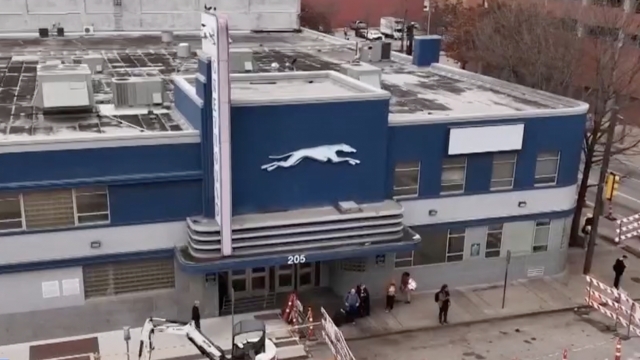While air travel is by far the most common way to get around, 16 million Americans ride Greyhound buses every year all across the country. But the Greyhound station in Dallas, Texas, like several others, will be closing its doors for good in October.
Jeremy Poston says he usually drives from Indianapolis to Waco to visit family, but since a car wreck totaled his vehicle the bus was his next best option.
"Coming from Indianapolis, Indiana, it goes pretty much anywhere you need it to go," Poston said.
Sara Cullen and Malachi Gordon packed up their life in Phoenix to get closer to family in Houston, Texas.
"And it was kind of just convenient, like financially. So it was just kind of quick and easy," Cullen said.
The bus station on South Lamar Street in downtown Dallas has been operating for more than 40 years, but the company that owns Greyhound does not own the terminal.
The city estimates that the land the station sits on is worth $2.8 million — pushing the new owners to let the lease expire so they can build something else.
Greyhound's parent company said in a statement to Scripps News, "We have no plans to end our service in Dallas and our goal is to identify a new terminal location as soon as possible."
What's happening in Dallas is indicative of a trend nationwide: intercity bus stations like Greyhound closing or downsizing because they can't afford the space they're in. In some cases, the closures leave travelers to wait in parking lots or street corners for their next bus ride.
Joseph Schwieterman is a professor at DePaul University who specializes in city development and transportation.
"Dallas has a lot of significance. And it's one of the primary connecting points in the central U.S.," Schwieterman told Scripps News.
Riders in Philadelphia, Charlottesville, Cincinnati, and Houston have all lost their downtown bus stations, and have had to make do with subpar replacements.
"When we see these stations closed, we see it's more than just a little bit of comfort: It's a way-of-life threat to some people," Schwieterman added.
Schwieterman says, unlike airlines, intercity buses make stops at small and midsize towns, making it particularly important for low-income travelers.
"It's the only real option for people who don't have a set of wheels, don't have somebody to pick them up at the airport or money to fly," Schwieterman said.
Jeremy Poston waited a full five hours for his connecting bus and says he can't imagine spending that time standing outside.
Poston told Scripps News, "I think the shelter part is a good thing because you never know what the weather's going to be like. Nobody wants to stand around and wait for a bus to come."
SEE MORE: As 2024 begins, transit agencies face massive budget shortfalls
Trending stories at Scrippsnews.com



